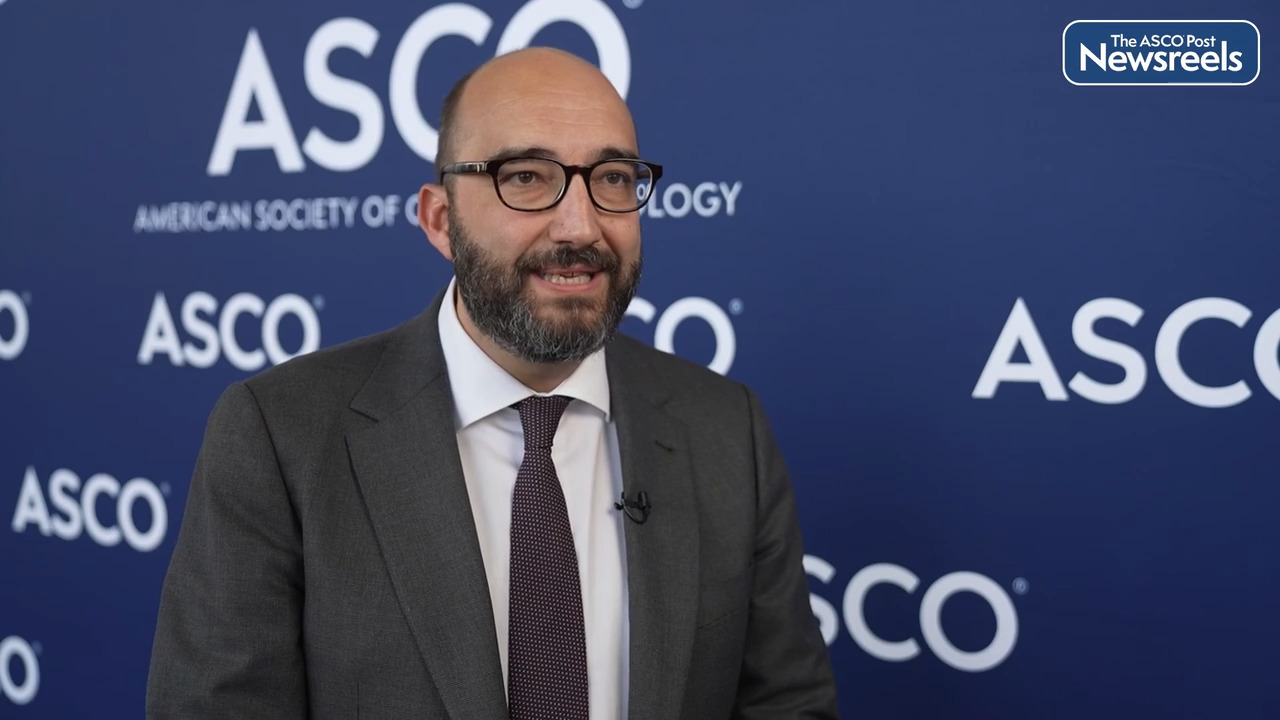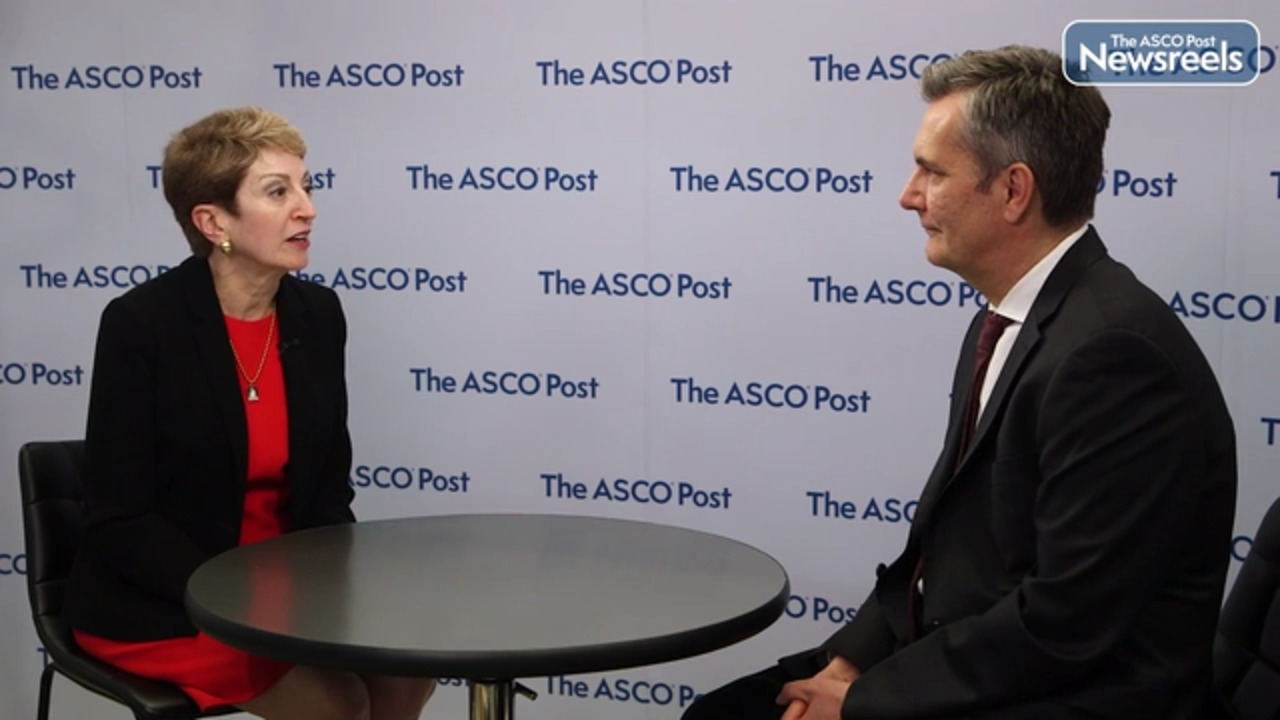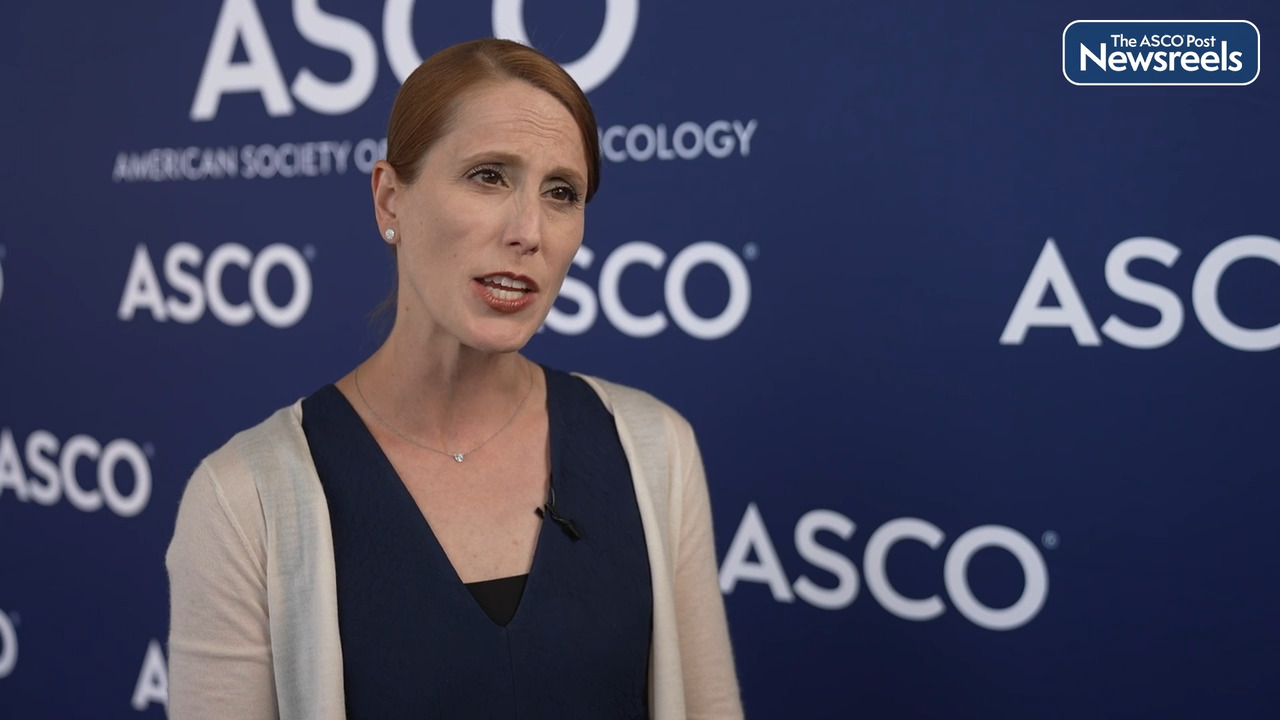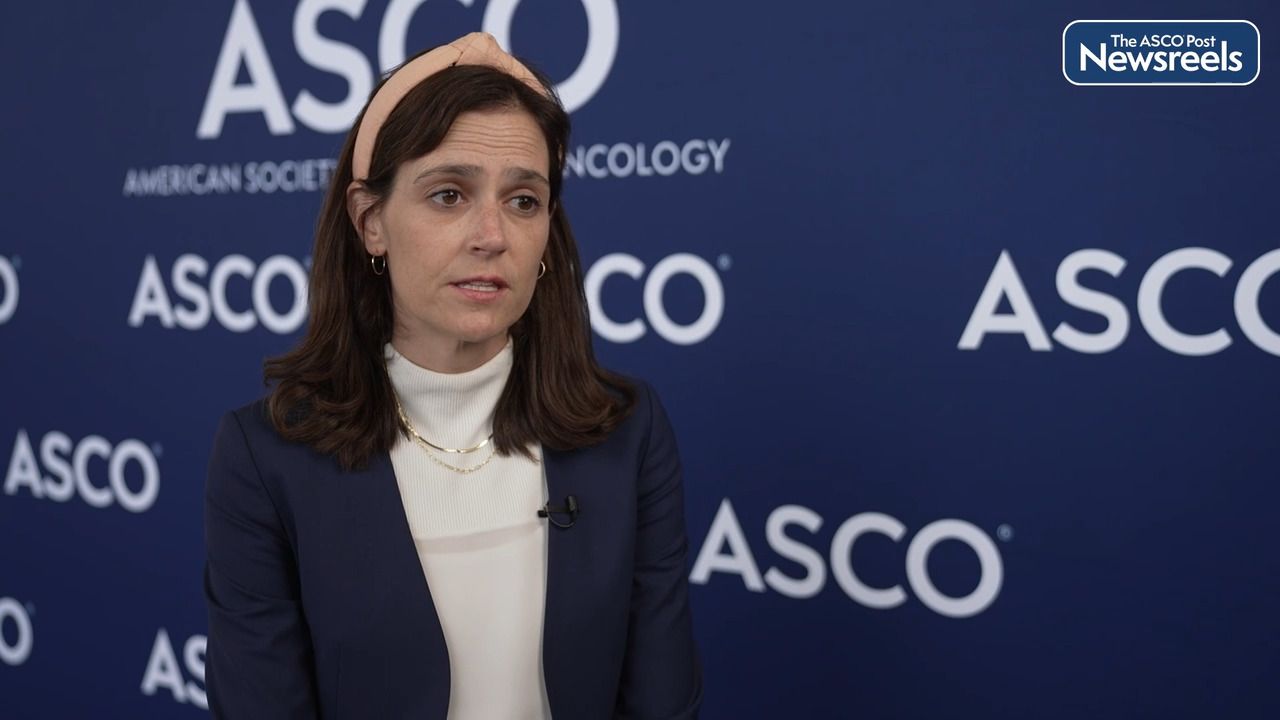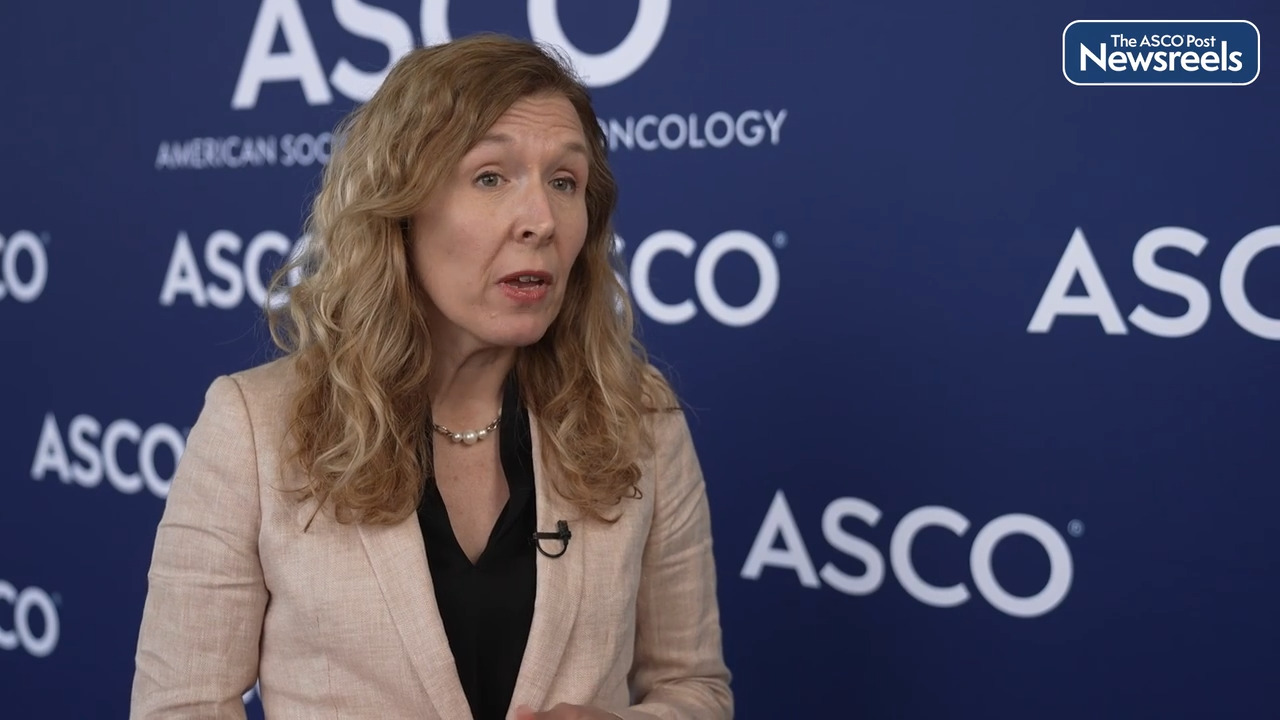Transcript
Disclaimer: This video transcript has not been proofread or edited and may contain errors.
Rana R McKay:
So tell us a little bit about the CONTACT-03 big phase III study that's getting presented at ASCO today. What's the rationale behind why this study was even designed?
Toni K Choueiri:
I think it's important study, that what we see in practice, that's taking observation from clinic and taking them to a randomized controlled trial. So in clinic we have been seeing a patient being re-challenged with immune checkpoint inhibitor after prior tumor progression on immune checkpoint inhibitor. We've seen it on the genitourinary cancers, we've seen it in kidney cancer, we've seen it in bladder cancer. We hear and there are publications from real world data about other cancers and when you look at the literature, there isn't much randomized studies there, if any.
Rana R McKay:
So tell me a little bit about the design of CONTACT-03. What is the study? How was it designed? What's the schema?
Toni K Choueiri:
So the biggest thing was to look if we challenge with immune checkpoint inhibitor has any effect, should we do that? And we use renal cell cancer as a model, self-serving because that's what I treat. And because we could do a study where the study would be A versus A plus B, where the B is the PD-L1 inhibitor, let's say. So in this situation, patients which tumor progressed on prior immune checkpoint inhibitor. And here I don't mean CTLA-4 inhibitor or other, I mean PD-1 or PD-L1 inhibitor. Which we randomized to a TKI cabozantinib at full dose versus cabozantinib plus atezolizumab. Why atezolizumab? PD-L1 inhibitor has single agent activity in metastatic untreated RCC 25%. Plays well with other drugs, so there is a safety data with cabozantinib. And also does not have a major place, or I would say any place, in untreated patient with all the other studies.
Rana R McKay:
Yeah.
Toni K Choueiri:
So we conducted that study over 500 patients were randomized. The usual stratification factors here, IMDC risk factor, prior adjuvant, first line, second line. We allowed one prior VEGF inhibitor. Usually that's what the patient receive. And progression-free survival was a primary endpoint. There was really no benefit.
Rana R McKay:
Yes.
Toni K Choueiri:
Median progression-free survival was the same in both arm, around over 10 months with cabo single agent or combination, response rate 40%. What we also found, no overall survival, not even a trend. We tried to look at specific subgroups. Our patient who have not received a VEGF TKI, almost 30%, these are probably patients that had nivolumab, ipilimumab. Do they have some benefit compared to the one who were pre-exposed? No.
Rana R McKay:
Yeah.
Toni K Choueiri:
We looked at several subgroup, there was nothing there. And also if you look at the toxicity profile, there is no new safety signal. That's great. But overall, at least numerically the toxicities are higher in the combination.
Rana R McKay:
This is a very relevant study because in clinical practice a lot of people are layering on the TKI post-progression on IO and a lot of times actually you're even compromising the dose of the TKI because you're not able to do full dose of the TKI, whether it be cabozantinib or a different TKI. But this was a really practice changing study. Do you think it's going to actually impact practice come Monday morning?
Toni K Choueiri:
I think possibly, at least in renal cell cancer. Now I have to say there are two caveat. Could I generalize it first to other solid tumor? Maybe, but the studies should be done. The second thing, this is a PD-L1 inhibitor. In renal cell cancer we know that at least from the frontline data and the adjuvant data that PD-1 inhibitor have been superior. They've shown survival benefit. Let's put it that way, they have work, nivolumab, pembrolizumab, where other PD-L1 inhibitor have worked less.
Rana R McKay:
Okay.
Toni K Choueiri:
So could it be due to the PD-L1 inhibitor? Having said so, we have a second study, very similar called TiNivo-2, which our renal cell community has invested in. And that study replaces cabozantinib with tivozanib and uses nivolumab. So that's a PD-1 inhibitor. That study is just finishing accrual and hopefully will get us-
Rana R McKay:
Yeah.
Toni K Choueiri:
An answer about PD-1 post-progression prior PD-1/PD-L1.
Rana R McKay:
Very important study. And I think too, the dosing of the cabozantinib was critical here at 60 milligram standard dosing. Really, cabozantinib has tremendous activity in the modern era and this study showed that.
Toni K Choueiri:
40% response rate, whether on independent center review or on investigator assessment. PFS over 10 months. I agree with you.
Rana R McKay:
Yeah.
Toni K Choueiri:
That's a bar that is somewhat high.
Rana R McKay:
Well, thank you so much for this groundbreaking study. I think it's definitely going to inform practice on utilization of IO/post-IO. Thank you, Toni.
Toni K Choueiri:
Thank you so much.
